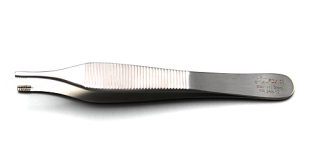Learn all about glossopharyngeal neuralgia the symptoms related to this kind of nervous disorder and its treatment options. Glossopharyngeal neuralgia originates from damage to the ninth cranial nerve, called the glossopharyngeal nerve.
Glossopharyngeal neuralgia is generally caused by a small blood vessel that presses on the nerves as they exit the brainstem. This condition is caused by irritation of the ninth cranial nerve by a blood vessel. Glossopharyngeal neuralgia is rare compared to other facial pain syndromes. It occurs slightly more in women than men. Patients are usually middle age and older. Glossopharyngeal neuralgia is an irritation of the ninth cranial nerve causing extreme pain in the back of the throat, tongue and ear. Attacks of intense, electric shock-like pain can occur without warning or can be triggered by swallowing. Although the exact cause is not known, a blood vessel is often found compressing the nerve. It can also occur in people with throat or neck cancer.
Glossopharyngeal neuralgia (GPN) is a condition causing throat, ear, and neck pain. The International Association for the Study of Pain (IASP) defines it as sudden, severe, brief, recurrent pain in the anatomical distribution of the glossopharyngeal nerve. Classically, it is described as a severe transient stabbing pain experienced in the ear, base of the tongue, tonsilar fossa, or beneath the angle of the jaw. However, the location of pain can have significantly varied distribution and overlap amongst the nerves supplying the face (trigeminal, vagal, facial).
Attacks are brief and occur intermittently, but they cause excruciating pain. Attacks may be triggered by a particular action, such as chewing, swallowing, talking, yawning, coughing, or sneezing. The pain usually begins at the back of the tongue or back of the throat. Sometimes pain spreads to the ear or the area at the back of the jaw. The pain may last several seconds to a few minutes and usually affects only one side of the throat and tongue.
Glossopharyngeal pain can be similar to trigeminal neuralgia and misdiagnosed. The goal of treatment is to control pain. A variety of treatments are available, including medication, surgery, needle procedures, and radiation. First-line treatment is usually medication. When medications fail to control pain or cause intolerable side effects, a neurosurgeon may be consulted to discuss other procedures. Therefore, patients are monitored with periodic blood tests to ensure that the drug levels remain safe. Multiple drug therapy may be necessary to control pain (e.g., Tegretol and amitriptyline).
What is Glossopharyngeal Neuralgia?
Glossopharyngeal neuralgia is a rare condition which is characterized by a sharp, jabbing pain deep in the throat, or in the tongue, ear, and tonsils, lasting a few seconds to a few minutes. The glossopharyngeal nerve is the ninth (IX) cranial nerve, which arises from the brainstem inside the skull. Any kind of irritation of this nerve can lead to a set of complaints seen in glossopharyngeal neuralgia. As the nerve supplies the back of the throat, tongue and ear region, symptoms of glossopharyngeal neuralgia are mainly located in these areas.
Glossopharyngeal Neuralgia Symptoms
Glossopharyngeal neuralgia symptoms include severe pain in areas connected to the ninth cranial nerve:
• Pain in back of the nose and throat (nasopharynx)
• Pain in back of the tongue
• Pain in ear
• Throat pain
• Tonsil area pain
It can sometimes be triggered by:
• Chewing
• Coughing
• Laughing
• Speaking
• Swallowing
Some people may also show symptoms of glossopharyngeal neuralgia in association with problems of related nerves. These symptoms can include changes in blood pressure and fainting, which may be considered as complications of glossopharyngeal neuralgia.
Glossopharyngeal Neuralgia Causes
Glossopharyngeal neuralgia is believed to be caused by irritation of the ninth cranial nerve, called the glossopharyngeal nerve. Some of the causes that can be related to glossopharyngeal neuralgia in most people include conditions that cause compression, damage or irritation of the glossopharyngeal nerve, like injuries, growths or arterial compression. In most cases, the source of irritation is never found. Some possible causes for this are:
• Blood vessels pressing on the glossopharyngeal nerve
• Growths at the base of the skull pressing on the glossopharyngeal nerve
• Tumors or infections of the throat and mouth pressing on the glossopharyngeal nerve
Glossopharyngeal Neuralgia Treatment Options
Glossopharyngeal neuralgia treatment includes medications, injections and in certain cases, which do not respond well to any treatment, surgical options may be considered. The first-line treatment of glossopharyngeal neuralgia is medical therapy. Because opioids and non-steroidal anti-inflammatory medications are ineffective against neuropathic pain, anticonvulsant medications are employed. The most commonly effective drug is carbamazepine (Tegretol) but other choices may include gabapentin (Neurontin), phenytoin (Dilantin), pregabalin (Lyrica), oxcarbazepine (Trileptal), and baclofen (Lioresal).
Surgical treatments include:
• Micro vascular decompression
• Radiosurgery
• Glycerol injection
• Radiofrequency rhizotomy or thermal lesioning
 Health & Care Information
Health & Care Information



